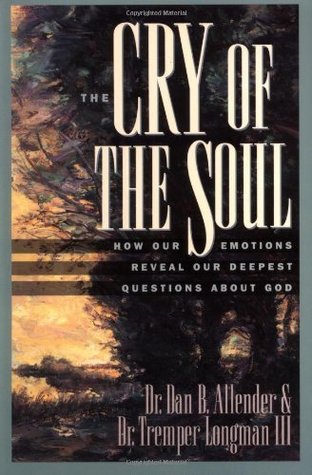More on this book
Community
Kindle Notes & Highlights
Read between
June 12, 2020 - February 13, 2021
Emotion links our internal and external worlds.
all emotion, positive or negative, opens the door to the nature of reality. All of us prefer to avoid pain—but even more, we want to escape reality.
Anticipation inevitably carries with it disappointment and longing.
each of us in our own way tries to dull the intensity of our groaning.
Their inner life is characterized by an inner coolness, bordering on indifference. Unfortunately, this is often mistaken for trust. In many circles, passionate emotions are discouraged as unspiritual. You are considered godly if you can handle difficult trials with a detached and apparently unruffled confidence.
Having been a member of a church like this in the past, I can relate to what is being said here. One of the prominent ladies had some difficult issues with her daughter. She never really showed any emotion related to it. I remember one of the other women commenting on it and saying how strong she was, giving me the impression that it was spiritual to not show your emotions when going through difficult times.
Another church we attended gave us the impression that we should always be outwardly happy no matter what difficult times we were in. You were a hypocrite if you came to church sad.
Maybe off topic:
One of the men posted on Facebook:
“It is nearly impossible for me to trust emotional preachers.”
He said emotional preachers are too often false teachers. So he prefers preachers who don’t get emotional.
There are times when lack of emotion is simply the by-product of hardness and arrogance. The Scriptures reveal that this absence of feelings is often a refusal to face the sorrow of life and the hunger for heaven; it is not the mark of maturity, but rather the boast of evil (see Isaiah 47:8; Revelation 18:7).
The presence of disruptive emotions that feel irrational or out of control is not necessarily a sign of disease, sin, or trauma. Instead, it may be the signal that the heart is struggling with God. Therefore, we must view the ups and downs of our emotional life not as a problem to be resolved, but as a cry to be heard.
If we are to understand ourselves honestly—and, more importantly, know God—we must listen to our emotions.
“The heart is deceitful above all things and beyond cure. Who can understand it?” (Jeremiah 17:9). Clearly, handling our inner world is more complex than simply making a choice to manage our emotions.
Ignoring our emotions is turning our back on reality; listening to our emotions ushers us into reality. And reality is where we meet God.
Am I moving toward God or away from Him? Am I turning toward God with awe and gratitude, or away from Him toward false gods of my own making?
We forget that change comes through brutal honesty and vulnerability before God.
Are you pursuing God? Your emotions will tell you. Are you pursuing false gods? Your emotional life will provide strong clues to the nature of your soul’s direction.
Are we to presume that good feelings are the sign of faithful pursuit of God, and bad feelings the sign of idolatry? How easy if it were that simple.
We can, however, view our emotions from the perspective of whether they lead us to engagement with God or move us away from greater dependence on Him.
if we listen carefully, we will learn how to fight the war successfully.
God meets you in your weakness, not in your strength. He comforts those who mourn, not those who live above desperation.


